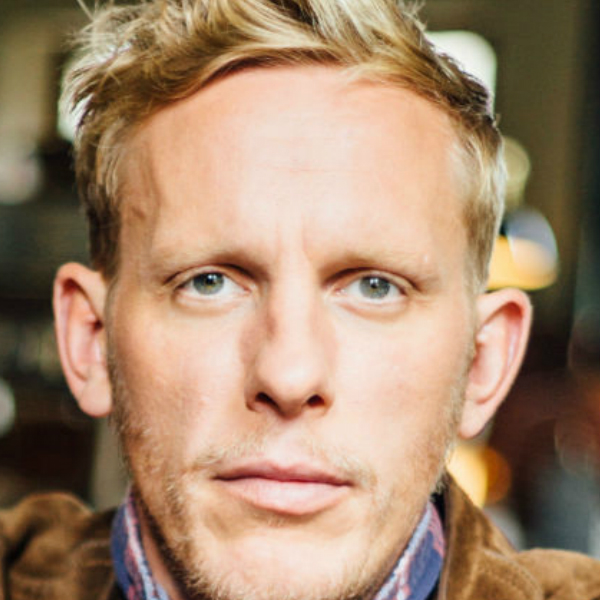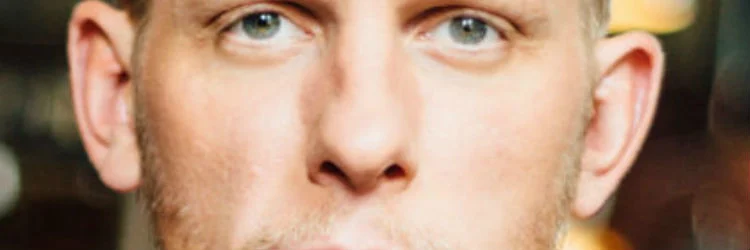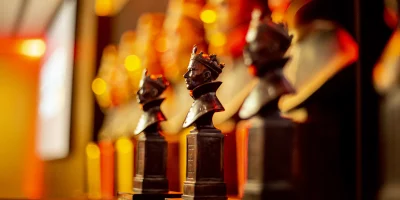
Friday Briefing: Actors and artists as spokespeople and other cultural storms
It is a critic's job to have opinions. Like 'em or loathe 'em, a critic can't, in the end, sit on the fence - as the saying goes, you end up having splinters up your arse.
But in the increasingly polarised world we live in, expressing opinions can get you into seriously hot water. What we write isn't necessarily popular, especially when we're being critical (as we sometimes must be).

At least we typically confine our opinions to the work in hand. But of course, art and the theatre don't exist in a bubble of their own: it reflects the world beyond it. But some celebrity actors can sometimes be accused of living in their own little bubbles of entitlement and/or grievance, as the actor Laurence Fox found out to his cost last week when he appeared on Question Time and ignited an unholy row about what exactly constitutes racism, when he insisted that it was him, in fact, who was the subject of racism when he dared to dispute an audience member's assertion to that Meghan Markle had been a victim of it, stating that Britain "is the most tolerant, lovely country in Europe", and "it's so easy to throw the card of racism at everybody and it's really starting to get boring now".
This may be the standard Donald Trump playbook, in which you project your own insecurities onto your opponent. When the audience member called him a white privileged male, he replied, "'I can't help what I am, I was born like this, it was an immutable characteristic. To call me a white, privileged male is to be racist."
As Guardian columnist Suzanne Moore wrote on Monday, "There is apparently money to be made by posh guys ventriloquising the so-called common man - whether they're slagging off vegans, Muslim women or climate protesters. In the future, everyone will bait liberals for 15 minutes. Fox is now in with the Spiked crew of provocateurs. Alt-left? Alt-right? Alt-dreary. There is a long line of these types, some cleverer than others: Rod Liddle, Richard Littlejohn and Jeremy Clarkson, with Toby Young, James Delingpole and Martin Daubney on the subs' bench. They present as dissenting voices, speaking truth to the elite. In reality, they just preach to people their age. To call this circle jerk of intolerance a culture war is to ennoble it... What people are saying when they say racism doesn't exist is that it doesn't exist for them. Their own identities are weirdly defined by a form of victimhood they profess to hate. So envious are they of oppressed people that they try to claim that they are too, in the name of free speech."
But if Fox has, in turn, suffered a potential career death by a thousand (or even million) tweets, with even a branch of the actors union Equity (its minority ethnic members committee) initially censuring him before the general secretary withdrew the charge, he also attracted some defenders. In the Spectator, Douglas Murray - author of The Madness of Crowds, a public calling for what the Times headlined in their review of the book "free speech and nuance in an age of hysteria" - pointed out "As it happens, actors are quite often asked onto Question Time, where they sprinkle stardust and disappointment in equal measure. The disappointment comes from the fact that when actors speak in public with words that have not been written for them, they tend to demonstrate a number of mental deficiencies. One is their holding to the core fallacy, that some politicians such as Jess Phillips also tend to display, which is a belief that the problems of the world would be largely solved if other people were more like them." But Murray went on to applaud Fox: "Last week Laurence Fox did something unusual. He did not play the game that - cynically or sincerely - most actors and actresses play. He appeared, on live television, and appeared to think for himself."
But that's the last thing an actor should do, some fellow actors think, with Lily Allen declaring publicly that she was "sick to death of luvvies... forcing their opinions on everybody else", especially when they 'never have to deal with what normal people have to deal with in his gated community. Stick to acting mate. Instead of ranting about things you don't know anything about".
In a round of follow-up appearances on other outlets, Fox doubled down on his sense of grievance about all things relating to race, complaining on James Delingpole's podcast that there's a Sikh in Sam Mendes's film 1917: "It is kind of racist, if you talk about institutional racism, which is what everyone loves to go on about, which I'm not a believer in, there is something institutionally racist about forcing diversity on people in that way." Hmmm.
As Marina Hyde wrote in another column in The Guardian, "When the contribution of Sikh soldiers to the first world war was later mentioned to him, he replied: 'I'm not a historian.' But luv: you don't NEED to be a historian. You honestly just need access to the website google.com. Because if you search the words 'Sikhs' and 'first world war', every single result from the very first one down will tell you how Sikh soldiers arrived on the Western front from 1914, how they were instrumental at Ypres, and so on for miles and miles. It literally couldn't be easier to find out about."
An actor at least needs to get their facts right if they're going to want to be a spokesperson for this kind of thing. Yet it is also a conversation worth having. And actors and writers can be a valuable part of it: as Sara Bareilles, who takes over in her own show Waitress in the West End next week, has said in an interview in The Times today, "I happen to think that as artists we have extraordinary responsibility to be on the front line as much as we can, to be the amplifier for the voices that need hearing. But there's also a lot of ego in that, to be, like, 'Oh, I can be the spokesperson!' It's a dance, so I think what I try to do is write songs about emotional material that really means something to me, on behalf of something that's bigger than me, and you just hope it lands and resonates with whoever needs it."
In other words, she lets her work speak for her. In the Times, it is pointed out that her song "Brave" has been adopted as an anthem for the LGBTQ+ community, and "A Safe Place to Land" advocates finding safe space for people in need.
But she also speaks proudly for the theatre community itself, telling the Times it "is just the most loving, open-armed, encouraging, diverse, beautiful group of humans. We're all on Team Theatre, trying to make Team Theatre have a voice, and have a life in the world."
I'll toast to that!
The eye of a cultural storm
There are other occasions, of course, where an actor finds themselves unwittingly in the eye of a cultural storm that unlike Fox they did not themselves create. Such was the case when producer Cameron Mackintosh sought to take Jonathan Pryce to Broadway to reprise his 1990 Olivier Award-winning performance as the Eurasian pimp called The Engineer in Miss Saigon. The 1991 transfer was nearly derailed when American Equity objected on behalf of its Asian members, suggested that one of them should be cast instead. Mackintosh in turn announced the show's cancellation, with a statement that declared, "Actors' Equity has refused to approve Jonathan Pryce to play the role of the Engineer in the Broadway production of Miss Saigon, as they cannot 'condone the casting of a Caucasian actor in the role of a Eurasian.' The creative team of Miss Saigon finds this position to be irresponsible, and a disturbing violation of the principles of artistic integrity and freedom. As a result, we are forced to announce the cancellation of next year's Broadway production of Miss Saigon. The debate is no longer about the casting of Miss Saigon, but the act of acting itself. because we feel so strongly about our own artistic position, we understand the depth of feeing within the Asian acting community and believe we share many of their aims. We passionately disapprove of stereotype casting, which is why we continue to champion freedom of artistic choice. Racial barriers can only undermine the very foundations of our profession."
In the end, the matter was resolved and Pryce did go on to play the role, but not without adjustments to the staging: unlike in London, he no longer wore prosthetics to alter the shape of his eyes and makeup to alter the colour of his skin.
But it also led to a sea-change in the way the role was cast afterwards, with only actors of - in the years since, they have cast the role only with actors of Asian heritage to play The Engineer, both on Broadway and on the United States tours. As Jon Jon Briones who had been in the original ensemble of the show and subsequently played the role in the most opening cast of the last London and Broadway revival of the show, commented to the New York Times: "I came from the Philippines, and we were used to yellowface, and how white actors play Asian roles, because we watched Hollywood movies all the time. We thought that was a normal thing."
In an interview in The Guardian this week, Jonathan Pryce recalled the controversy, commenting that he felt like the lightning rod for a wider cultural storm. "I mean, I was always confident that I wasn't portraying a stereotype. But all I could do was sit back and let other people have the argument. And I got support from very strange and unwanted quarters. Charlton Heston sent me a photo of him playing Fu Manchu. He signed it: 'From one yellowface to another.' And I thought: 'That's not what I'm doing, Charlton. Thanks for your support.'"
He also acknowledged: "But that's the way change happens. It showed there was an inequality in the casting process. It's just tough when you're on the receiving end."
Originally published on









